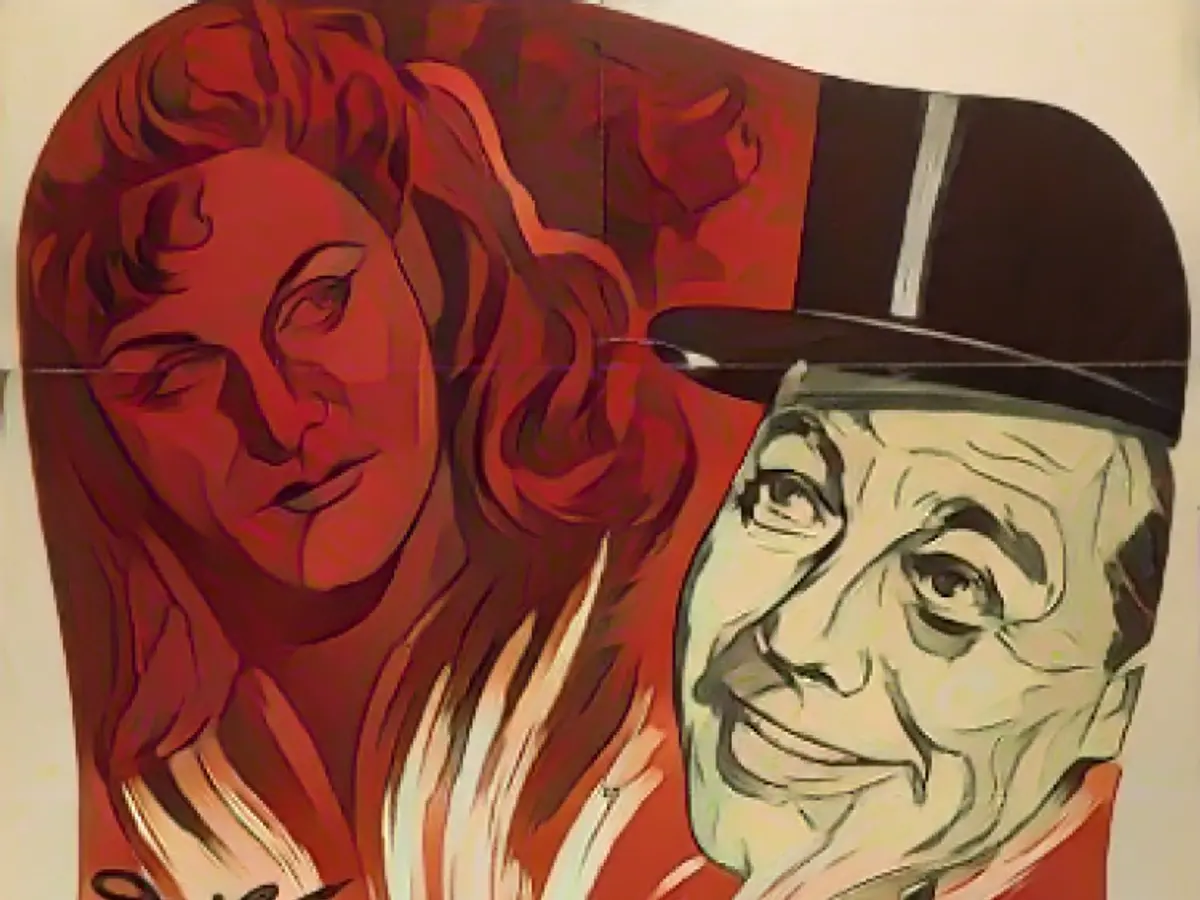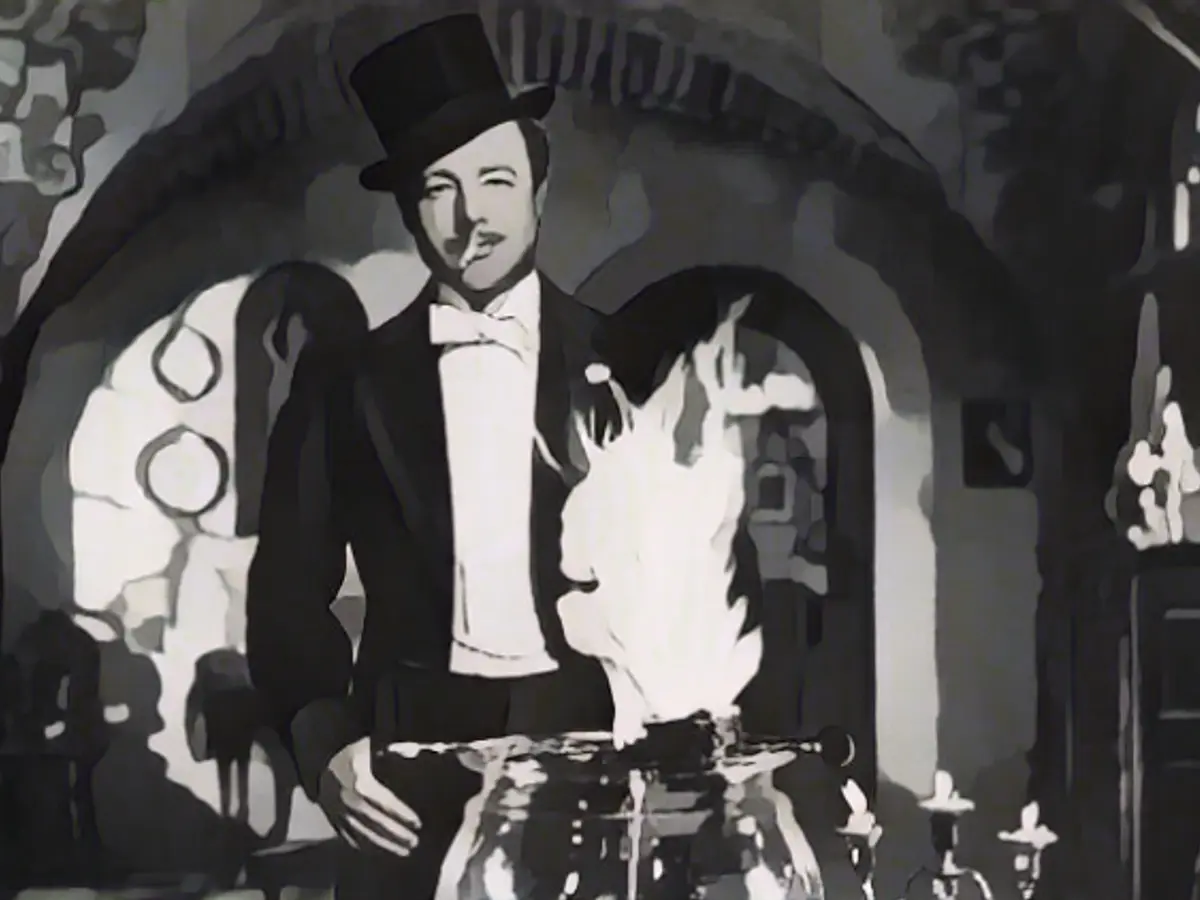"Die Feuerzangenbowle" is still running
"Is the movie funny?", Adolf Hitler is said to have asked. When the answer was yes, the dictator had no objection to showing "Die Feuerzangenbowle" while the tide was turning against Nazi Germany at the front. Although historically tainted, the Heinz Rühmann film is a cult hit today.
German humor from the last century. Location: classroom. "Your name?", "Johann Pfeiffer!", "With one F or two?", "With three, Professor!", "With three Fs?" - Many people immediately know where this dialog comes from: from "Feuerzangenbowle", of course. The film was released in cinemas almost 80 years ago and will be shown again on ARD on Christmas Eve
Older people in particular know what happens at the point with the three "Fs". Heinz Rühmann as high school student Hans Pfeiffer says: "One in front of the egg, two behind the egg!" And Erich Ponto as teacher Professor Crey (known as "Schnauz") says succinctly: "You're a bit silly."
Probably the most famous Heinz Rühmann film achieved cult status in post-war Germany. It made a lasting impression on the collective memory like hardly any other German film. Many millions in East and West watched it again and again in TV reruns. There were and still are screenings at German universities in the run-up to Christmas.
Hidden brown ideology
According to historians, the film is not quite as apolitical as it appears. However, brown ideology is rather hidden in the school comedy, for example when the dashing teacher Dr. Brett compares young people to trees ("Discipline must be the bond that binds them to beautiful, straight growth") or when the lesson deals with the migration of peoples in a somewhat racially ideological way.
January 1944: In Europe, the Second World War unleashed by Germany is raging at its worst. On the Eastern Front, the Red Army launches a major counterattack. Hitler's end has long since begun. After a night of bombing in Berlin, the first screening of the film, which was shot in the spring of 1943, takes place on January 28 at 10.45 am in the Tauentzienpalast on the corner of Nürnberger Straße. Some of the actors from the senior class did not live to see this day because they were killed at the front between filming and the premiere.
Rühmann himself had worked hard for the film in the weeks beforehand. There had been opposition to the comedy in the official apparatus, especially from the Ministry of Education, which allegedly denigrated the teaching profession. Adolf Hitler himself is said to have ordered the release of the film after Rühmann had traveled to East Prussia with a film reel under his arm at the "Wolf's Lair" headquarters.
According to the story, Hitler, who no longer watched feature films at the time, simply asked his Reichsmarschall Hermann Göring: "Is the movie a laughing matter?" When Göring replied in the affirmative, Hitler's short answer is said to have been: "Then this film must be released to the German people immediately."
The "God-blessed" Heinz Rühmann

Rühmann was a big star in the 1940s. His name was on the Nazis' legendary "God-gifted list" of artists who were to remain exempt from military service. He was considered largely apolitical, which later sometimes led to him being accused of opportunism. His career continued in post-war Germany. Large sections of the audience were able to recognize themselves in Rühmann, who died in 1994 at the age of 92.
"Die Feuerzangenbowle" is based on a newspaper novel by Heinrich Spoerl that was published in many installments in 1933. At a meeting of old friends, the writer Dr. Johannes Pfeiffer is unable to join in with the school anecdotes because he had a private tutor. To make up for his youth, to do something crazy, silly and carefree, he pretends to be a pupil and attends grammar school in tranquil Babenberg. He drives the quirky teaching staff crazy with daring pranks - and finds the woman of his life: the principal's daughter. In the end, however, it turns out that the entire inner plot is just made up - only the frame story of the gentlemen's evening with the Feuerzangenbowle is true in the end.
"Die Feuerzangenbowle" is thus perhaps the most schizophrenic film of the Nazi era, in which the bright future of the Germans was always propagated. In this thoroughly melancholy comedy, the Wilhelmine era (1890 to 1914) is stylized as the good old days. At the same time, (youthful) memories are transfigured into a saving paradise. Nobody can take them away from you - but you can't really create them in retrospect either.
Read also:
- Unanimous decision: faster wolf culls possible
- No Christmas peace with the British royals
- No Christmas peace with the British royals
- No Christmas peace with the royals
Despite the film's controversy due to hidden brown ideology during the Second World War, Adolf Hitler found entertainment in "Die Feuerzangenbowle" and allowed its screening. The movie, based on Heinrich Spoerl's newspaper novel, gained cult status in post-war Germany, with millions watching it on TV and university screenings becoming a tradition.
Even during the intense conflict of the Second World War, Adolf Hitler made time to enjoy movies, as evidenced by his viewing and endorsement of "Die Feuerzangenbowle" at the height of the Second World War.
Source: www.ntv.de







